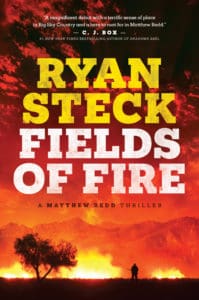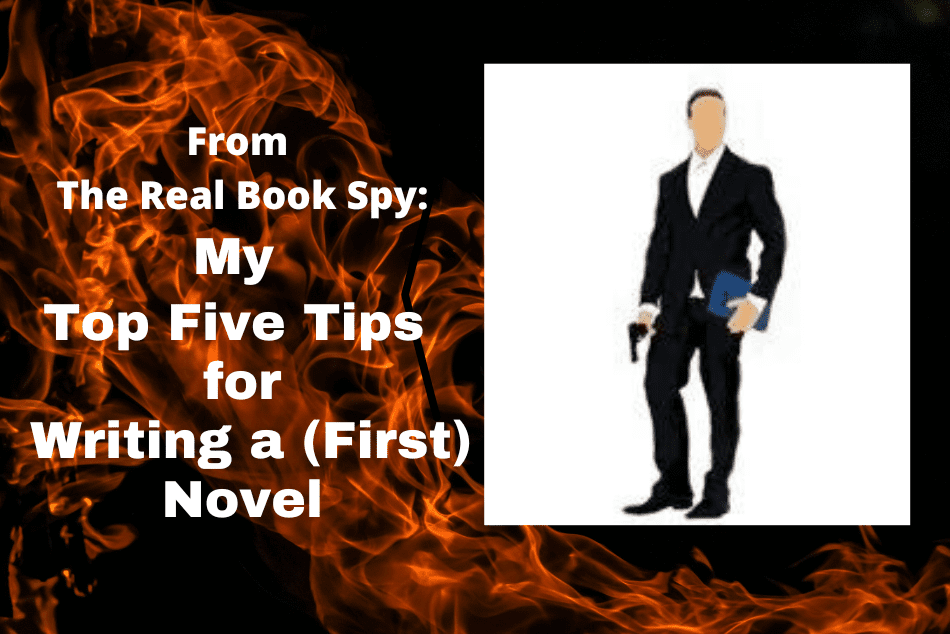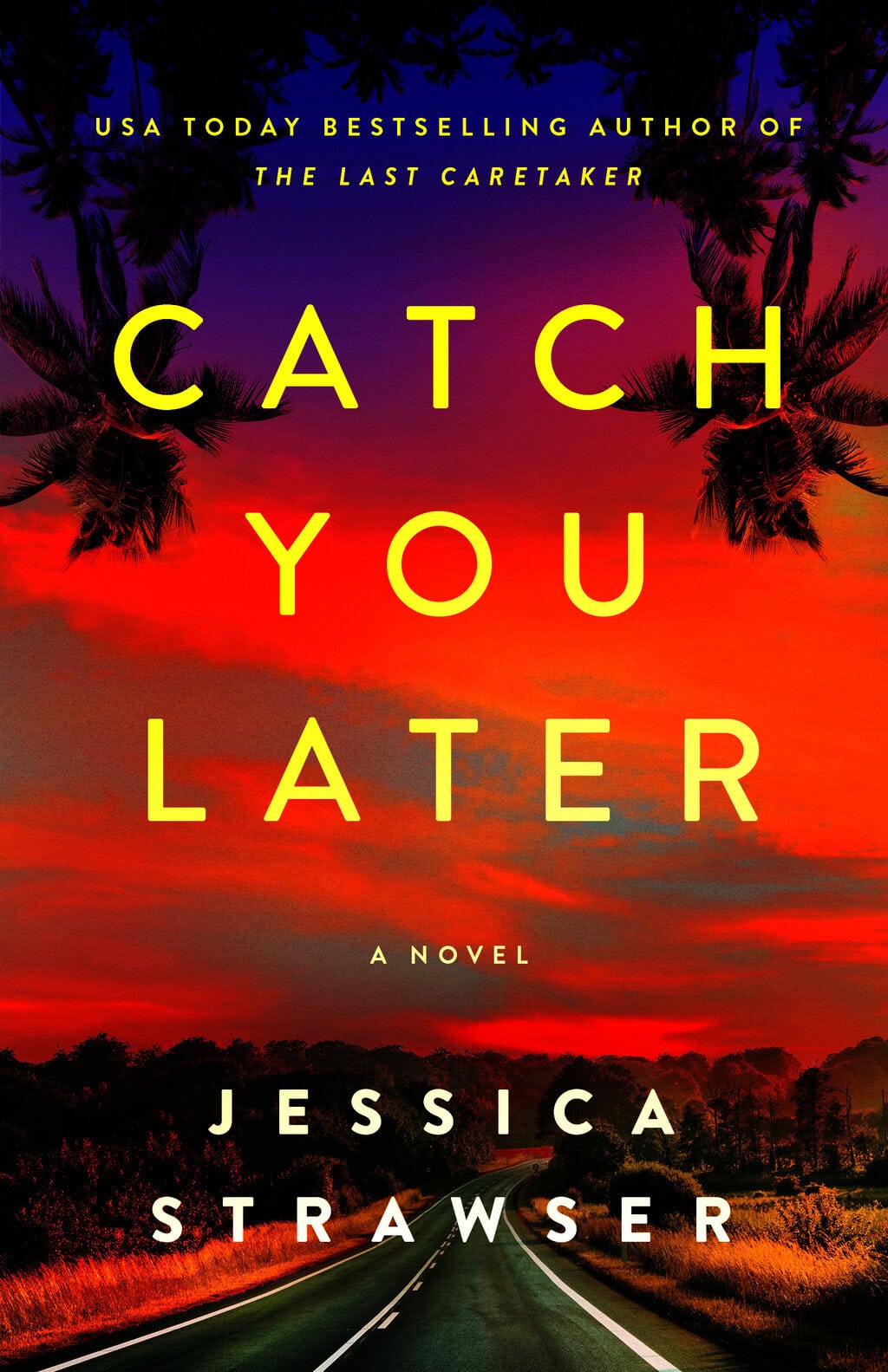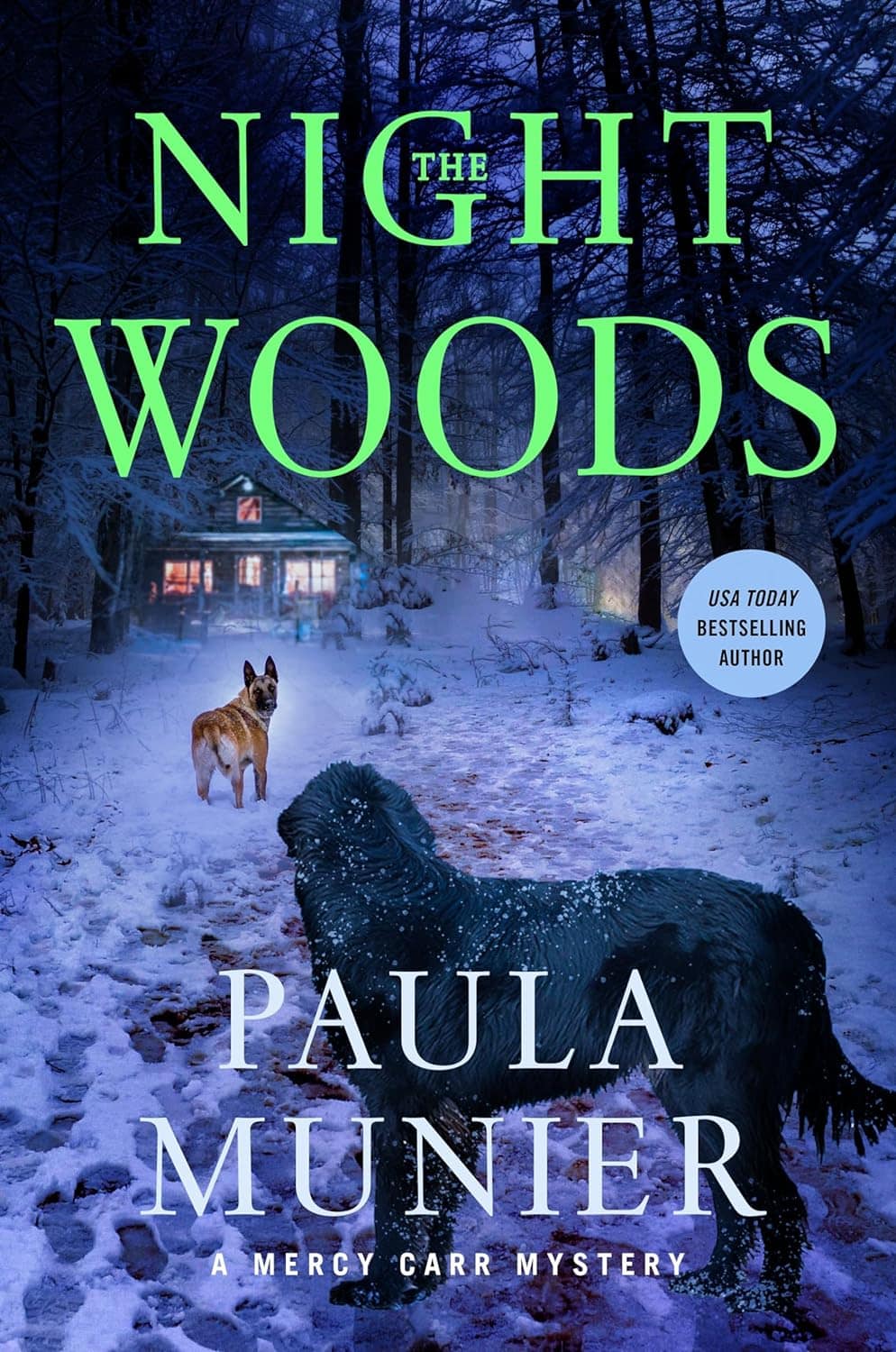You may know him as The Real Book Spy—Ryan Steck is the go-to for all that’s new in thriller world, and a premier online influencer. (And you can see the deets in his bio below.) But now, to show how truly brave he is, he’s moved to the other side of the aisle—his debut novel is out now, and to much acclaim.
But what did he learn from his expensive experience reading and analyzing other people’s work? And how did he translate that to his own crime fiction success? Each of us creates our own path, and uses our own methods, and makes our own decisions. But it’s always educational—and inspirational—to read how soon else does it. Career Authors asked Ryan to unpack his journey.
A lifelong, massive fan of the thriller genre, it’s crazy to now be on the other side of articles like this. Never did I think that one day I’d have a book coming out with my name on it. Or that I’d be sharing a character I created with readers. And yet I am proof that anyone can be an author—you just have to sit down and crank out the story you want to tell. I know, I know . . . easier said than done, right? Trust me, I get it. And that’s why I’m going to share my top five tips for writing your first novel—all of which helped me write Fields of Fire, and my second book, which will come out next year.
Write every single day
When it comes to writing, I’m an avid believer that the best way to hone your craft and constantly improve is to do it every day. Much like targeting a muscle group in the gym, it’s the consistent repetitions that make you stronger—and when it comes to storytelling, that certainly has been the truth for me. Yeah, there are days where crazy schedules or unforeseen life events keep you from hitting your word count, and as someone who has six kids and a full-time job on the side, I completely understand. My goal is to counter those days when I can’t write by being as productive as possible the rest of the time. To do that, I try to write 1,500 to 2,000 words per day. That’s about a chapter, and if you commit to that and stick to it, it’ll add up fast.
Look at it like this: the average thriller is 100,000 words in length. So if you write 2,000 words a day in about two months—factoring in a few days missed for various reasons—you can have a rough first draft done
Don’t edit a rough draft
The goal of a first draft is to get the story out. Period. Try to focus on that, and give yourself permission to write bad pages here and there, so long as you’re getting the story out on the page. You can always go back and edit later. That’s what a second draft is for!
A lot of people have a story they want to tell. Many even sit down to start writing it. But very, very few people ever hang in there long enough to type the two most coveted words an aspiring author dreams about: The End. So write every day and stick with you. Get your story out, and then go back and try to make it better when you self-edit. That’s the time to cut, trim, rewrite, or add as needed. If you’re trying to make a first draft perfect, constantly tweaking what you’ve already written, you’ll never get to the end. So focus in. Get your story down first, and then go make it the best you possibly can.
Don’t worry about the overall word count
As I already mentioned, the average thriller is 100,000 words in length, but that doesn’t mean you should be worried about that when you first start writing. Remember, get the story out, and then you can self-edit. The problem with editing too much as you go, beyond just the fact that to look backward means you’re not moving forward with your writing goal, is that you could end up wasting valuable time on words, paragraphs, or even full chapters that might end up being cut anyway.
So if you notice your word count is a little high, that’s okay! Finish your first draft, and then refine and chop as needed, cutting away anything you don’t absolutely need.
Write what you want to write, not what you think the market wants
I’ve talked to a lot of new, aspiring writers who tell me about a story idea they have, only to see them become discouraged because they don’t think it’s a good time to be working on such a book. I cannot stress this enough: write what you want to write, not what you think the market wants. Why? Because if I’ve learned anything in my time as a Book Spy, editor, and now as an author, it’s that the market—meaning the publishers—doesn’t have a clue what it wants until you show it to them.For the most part, it’s a copycat industry, that’s true.
When Gillian Flynn took the genre by storm with Gone Girl, everyone wanted in on that action. Publishers were snatching up psychological thrillers, especially ones with unreliable narrators, left and right. But that doesn’t mean that action thrillers and crime novels weren’t moving too. So don’t ever abandon a story idea and manuscript you’re working on because you think it’s not right for the industry at that time. The pendulum always swings back in the other direction, and good manuscripts always sell. So write what you’re passionate about, and tell the story you want to tell.
Never ever give up
Let’s say you’ve gotten to those words I mentioned earlier, and after months of hard work, you finally get to type: The End. Congratulations! Now the real work begins. Time to self-edit, refine, and make your story the best you possibly can. After that, you’ll need to query agents, and anyone who’s been through that process knows it’s about as fun as purposely stepping on LEGOs. Finding an agent can be rough, and sometimes the feedback is brutal. But don’t quit. Don’t ever quit—keep going. Keep writing. Keep revising. Keep editing. And if you’re still not getting anywhere, even after you feel like your manuscript is the best you can possibly make it, then start another one.
Just because an agent doesn’t immediately sign on to represent you doesn’t mean your book isn’t good or even worthy of being published. Tom Clancy couldn’t find anyone to publish his first book. Maybe you’ve heard of it—it’s called The Hunt for Red October and went on to sell millions of copies before being made into a major motion picture starring Sean Connery and Alec Baldwin. That’s right, the mainstream publishers didn’t think it was good enough, so it was originally printed by the Naval Institute Press. The only thing crazier than that story is the fact that there are countless others just like it.
Back in the midnineties, my favorite author, Vince Flynn, couldn’t find an agent who believed in his debut thriller, Term Limits, enough to sign him as a client. So Flynn self-published (and this was before just anyone could do that on Amazon) and sold hardcover copies out of the trunk of his car. Eventually, after selling enough copies that people started to take notice, an agent pounced, picked him up, and landed him a lucrative contract with publishing powerhouse Simon & Schuster.
The moral of the story is simple: Don’t give up. If you’re a writer, then write. No matter what. And one day, if you keep working, you’ll get where you want to go.
Is this how your journey unfolded? Tell us on the Career Authors Facebook page! (And then, get writing!)
Ryan Steck is an editor, an author, and the founder and editor in chief of The Real Book Spy. Ryan has been named an “Online Influencer” by Amazon and is a regular columnist at CrimeReads. TheRealBookSpy.com has 
 been endorsed by #1 New York Times bestselling authors Mark Greaney, C. J. Box, Kyle Mills, Daniel Silva, Brad Thor, and many others. A resident of Michigan, along with his wife and their six kids, Steck cheers on his beloved Detroit Tigers and Lions during the rare moments when he’s not reading or talking about books on social media.
been endorsed by #1 New York Times bestselling authors Mark Greaney, C. J. Box, Kyle Mills, Daniel Silva, Brad Thor, and many others. A resident of Michigan, along with his wife and their six kids, Steck cheers on his beloved Detroit Tigers and Lions during the rare moments when he’s not reading or talking about books on social media.





